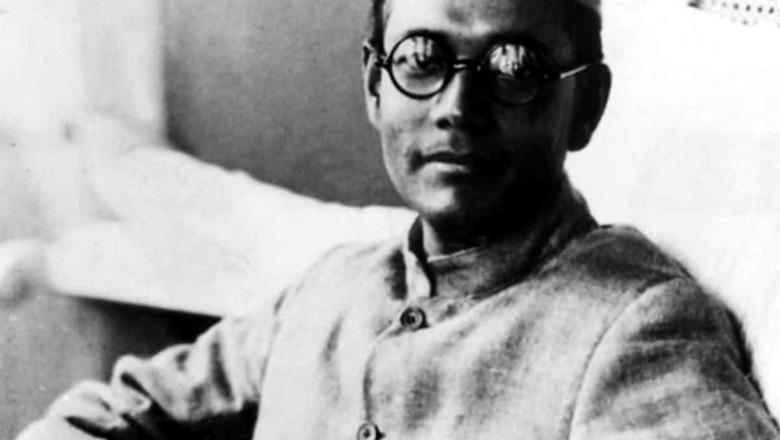
views
Subhas Chandra Bose, popularly known as Netaji, was one of the tallest leaders of the Indian independence movement. A staunch nationalist, Bose is known for his brilliant strategic moves to garner support for his cause not just in India but abroad as well. He formed the Azad Hind Fauj or the Indian National Army to fight the Britishers who occupied India. On his 125th birth anniversary, we recall his life and contributions to India’s freedom struggle.
Early life and Education
Born on January 23, 1897 in Cuttack in the Bengal Province, he was ninth in a family of 14 children. His primary schooling was done at the Protestant European School in Cuttack, before being admitted to the Ravenshaw Collegiate School. After school, he joined the Presidency College, but later changed to the Scottish Church College at the University of Calcutta where he obtained his B.A degree in philosophy.
To fulfill his father’s wish, he prepared for the Indian Civil Services examination, in which he bagged the fourth rank. But he did not want to serve the British and so he resigned from his job in April 1921 to join the independence movement.
Bose Joins Independence Movement
Bose started the newspaper Swaraj, which stood for freedom. For his nationalist credentials, he was arrested by the government in 1925. After being released two years later, he became general secretary of the Congress party, where he worked with Jawaharlal Nehru.
Bose was jailed again for participating in the civil disobedience movement. After his release in 1930, he became the Mayor of Calcutta.
Bose Quits Congress, Forms Forward Bloc
Bose was forced to quit the Congress party owing to his differences with Mahatma Gandhi and other senior party leaders. Consequently, Bose formed the All India Forward Bloc on June 22, 1939.
Bose Escapes to Germany
Bose escaped from under house arrest imposed by the British to make way for Germany. He arrived in Germany in 1941, where he tried to garner support for the cause of India’s independence. However, after realizing changing German priorities, Bose left for Japan in a German U-boat in February 1943.
Formation of Indian National Army
Bose formed the Indian National Army which comprised captured Indian soldiers of the British Indian army in the Battle of Singapore. The INA fought the British army at various places in the Burmese territory. However, Bose’s military effort was short-lived as the British army prevailed.
Mystery of Bose’ Death
Bose is said to have died of third-degree burns when his plane crashed in Taiwan. However, there were many who believed he did not die in that crash and that he was in hiding, waiting for the right opportunity to strike again. His death has been surrounded by conspiracy theories ever since.
Bose was a charismatic leader who was an icon for the youth who dreamed of an independent India. His famous quote: “Give me blood and I will give you freedom” had become the war cry for millions of Indians.
Read all the Latest News, Breaking News and Coronavirus News here




















Comments
0 comment